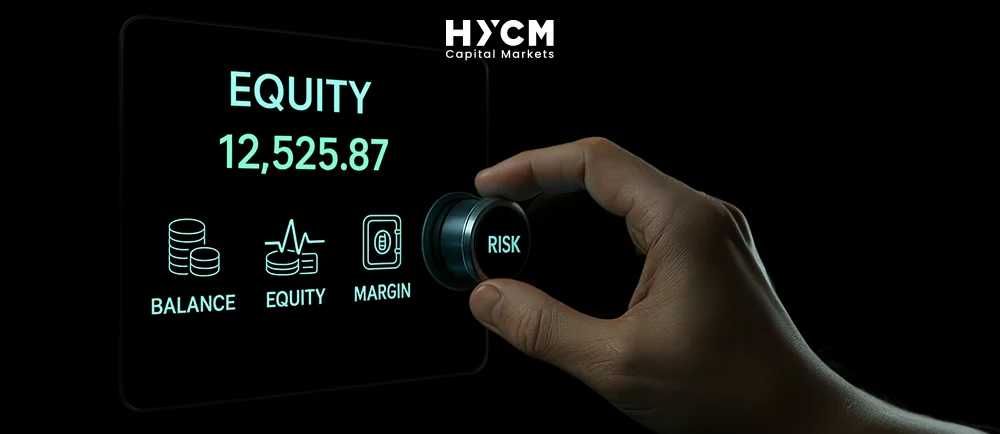Why Equity Matters in Forex Risk Management?
Equity is not just a technical detail—it’s a cornerstone of effective risk management in forex trading. Every decision you make about opening or closing a position, using leverage, or managing losses depends on understanding your current equity.
1. Determining Available Margin
Equity directly impacts how much free margin you have left in your account. If you open multiple positions or if the market moves against you, your floating losses reduce your equity, which in turn shrinks your free margin. When equity gets too low, brokers may issue a margin call or forcibly close your positions. Monitoring equity helps avoid these scenarios.
2. Setting Realistic Position Sizes
By keeping track of your equity, you can size your trades appropriately based on how much capital you truly have available—not just your static balance. This helps prevent overexposure and reduces the risk of large drawdowns from unexpected market swings.
3. Protecting Capital During Volatility
During high-volatility events like economic news releases, floating P&L can change quickly. By observing your equity in real time, you can make fast decisions to reduce exposure, hedge positions, or take profits—keeping your account safe from sudden losses.
4. Measuring Account Health Accurately
Relying on balance alone may give a false sense of security. Equity gives you a clear picture of your real-time net worth, allowing you to make decisions based on actual account performance, not just past outcomes.

In short, equity is the heartbeat of your trading account. Without monitoring it, you risk flying blind. By integrating equity checks into your trading strategy, you gain greater control, enhance decision-making, and reduce emotional reactions to market changes.
Equity Is the Pulse of Your Forex Account
Equity is much more than a number on your trading platform—it’s a real-time reflection of your account’s health and trading potential. It shows the true value of your capital by factoring in both closed and open positions, providing a dynamic view of where you stand in the market.
By understanding how equity is calculated and how it differs from balance and margin, you gain a clearer picture of your financial exposure. More importantly, equity serves as a foundation for responsible trading. It influences your margin availability, protects you from overleveraging, and helps you react swiftly to changing market conditions.
For any serious trader, monitoring equity isn't optional, it's essential. Whether you're placing your first trade or managing a portfolio of positions, always keep your eye on your equity. It’s the key to making smarter decisions, avoiding margin calls, and maintaining long-term stability in your forex journey.
FAQs About Equity in Forex Trading
What is equity in forex trading?
Equity is the current value of a trading account, including both the account balance and any floating (unrealized) profits or losses from open positions.
How is equity different from balance?
Balance reflects only closed trades, while equity includes the real-time profit or loss from open trades. Equity = Balance ± Floating P&L.
Why is equity important for margin trading?
Equity determines how much free margin is available for opening or maintaining trades. If equity drops too low, it can trigger margin calls or stop-outs.
Can equity be higher than balance?
Yes. If you have open positions with unrealized profits, your equity will be higher than your balance. Conversely, if you have floating losses, your equity will be lower.
How do I avoid equity dropping too low?
Use proper risk management techniques like stop-loss orders, conservative leverage, and keeping enough free margin in your account to handle volatility.







